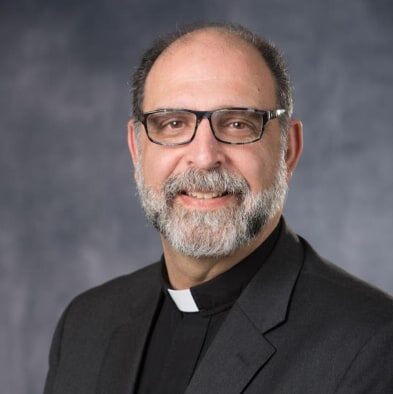Spiritual Advising
Northeastern’s one-on-one Spiritual Advising sessions are available to all members of the Northeastern community. In one-on-one meeting, Spiritual Advisors (SAs) offer assistance and support for a wide range of spiritual and personal needs. All are welcome!
Fill out the form below to help us determine the right spiritual advisor for you.
Schedule an appointment either by using the form on this page, emailing [email protected], or emailing one our Spiritual Advisors directly.
Northeastern’s group of Spiritual Advisors represent and serve diverse religious, spiritual, and humanist traditions. Each brings a distinctive approach to spiritual advising, congruent with their own tradition and training, yet there is a common thread, which advisees may expect in a Spiritual Advising session.
A Spiritual Advising session may take place in the Spiritual Advisors’ offices in the Center for Spirituality, Dialogue, and Service (203 & 206 Ell Hall), where the glass-windowed door may remain open or closed at the preference of the visitor. Or the SA and the advisee may agree to meet in, for example, the Catholic Center on St. Stephen Street. They may agree to meet in the Sacred Space in Ell Hall, take a walk around campus, meet over a non-alcoholic beverage or snack, or meet virtually. The main guidelines here serve the comfort and safety of the person seeking spiritual care and the professional accountability of the Spiritual Advisor.
Spiritual Advisors are available by appointment and during drop-in hours. The visit may last a few minutes or up to an hour, which can be agreed on by the visitor and the Advisor. A general rule of thumb in some traditions holds that the scope of spiritual care suits up to three sessions on a given topic. If a student’s needs exceed that guideline, the Spiritual Advisor would support and even accompany the student in connecting with further resources on campus.
Spiritual Advisors:
✓ Listen
✓ Accompany
✓ Mentor
✓ Guide
✓ Advise
✓ Ask questions
✓ See the whole person
✓ Offer moral support
✓ Offer spiritual resources such as texts and teachings for reflection
✓ Offer and teach spiritual practices to support well-being
✓ Create and hold safe and brave spaces
✓ Wonder
✓ Illuminate tradition
✓ Teach
✓ Guide moral and ethical decision-making
✓ Reflect
✓ Promote growth, healing, and human understanding
✓ Connect present struggles with larger realities and traditions
✓ Practice compassion
✓ Liaise with other University resources and services
✓ Keep confidentiality (with a few notable exceptions)
✓ Listen, listen, listen
Spiritual Advisors do not:
❖ Provide psychological evaluation, treatment, or counseling
❖ Mediate conflicts – but may assist in the process
❖ Insist that an advisee adhere to certain religious practices
❖ Socialize with, nor befriend, students in a peer-like way
❖ Directly provide a safe haven – but may accompany the advisee in connecting with NUPD or other safety resources
❖ Directly provide financial assistance – but may help advisees connect with other University services in cases of financial stress
❖ Provide social work services
❖ Speak against the University or its personnel either in public or one-to-one encounters
• Grappling with questions of personal identity and/or vocation and career direction
• Managing and balancing stress
• Searching for and discovering or making meaning in life
• Exploring spiritual, theological, philosophical questions
• Dealing with suffering
• Making life-giving choices
• Building and healing relationships – with family, roommates, friends, co-workers
• Wrestling with a text or teaching from a religious tradition
• Cultivating personal well-being


























